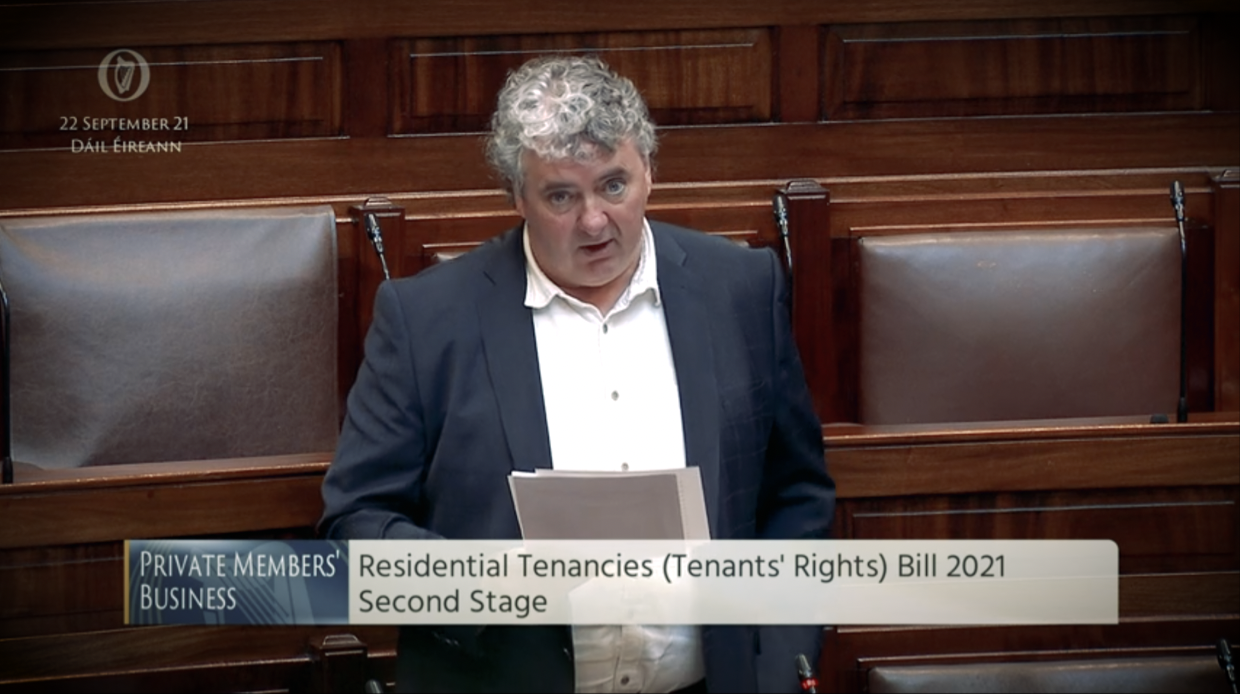- Pringle: We need a policy that recognises the importance of inshore fishing
- Pringle: Disabled people and carers face crisis of State neglect
- Pringle: Failed FF/FG housing policies forcing people to put their lives on hold
- Pringle welcomes Donegal council motion on Occupied Territories Bill: ‘We cannot stand by in the face of genocide’
Pringle: Local authorities should be empowered to oversee certification process for builds
- Updated: 22nd September 2021

Independent TD for Donegal, Thomas Pringle, said local authorities should be empowered to oversee the planning, acquiring, registration, inspection and certification process for builds.
Addressing the Dáil this morning (Wednesday), Deputy Pringle said the Government must provide 100 per cent redress to homeowners affected by mica-affected blocks. But this is not enough, he said.
Deputy Pringle said: “Currently the Building Control Act is a hybrid of private and public that has allowed for issues such as we currently see in Donegal and Mayo with mica. There is scope and opportunity to empower local authorities properly to provide new and improved mechanisms to ensure that homeowners are protected.”
But it’s not all about new mechanisms, he said, saying that local authorities should be empowered to enforce what’s already there. “It’s a sad situation that we don’t have the enforcement to ensure the blocks are manufactured to proper standards,” he said.
The deputy said: “This is something that the Government should consider if it is serious about not only addressing the mica issue, but ensuring that this does not happen again as well.”
Deputy Pringle was speaking on the Labour Party’s Residential Tenancies (Tenants’ Rights) Private Member’s Bill. He said he supported the bill, particularly its effort to address security of tenure, rent and deposits and quality of accommodation, but said there were areas that could be looked at further.
The deputy said there was an urgent need for more cost rental homes that operate on a not-for-profit basis. He pointed to the system known as the Vienna Model, which provides state-owned accommodation that delivers affordable rental accommodation for low-to mid-income households, reinvesting surplus money from rents back into the system. In comparison, he said, the proposed model under the Government’s Housing for All only leaves room for developers to profit.
Deputy Pringle said: “I don’t think anyone in this chamber would disagree that this country is undergoing a huge rental crisis at the moment. You need only to have looked outside last week to see just how many this housing crisis is affecting. In my constituency of Donegal I have been contacted by many students, excited to begin or return to college, yet who are unable to secure any type of accommodation and are being forced to actually reconsider their college places. This should never be the case and we should all feel ashamed that we have forced our youth into this situation.”
The deputy said: “It is vital that in a country such as Ireland, where increasing numbers of families are renters, that quality of life be taken into legislative consideration and I commend this bill for taking this into account. While there may have been a time when renting was the domain of students or transient workers, this is no longer the reality.”
He said: “We need to pull current rental rules into the 21st century and give our renters the quality of life they deserve.”



